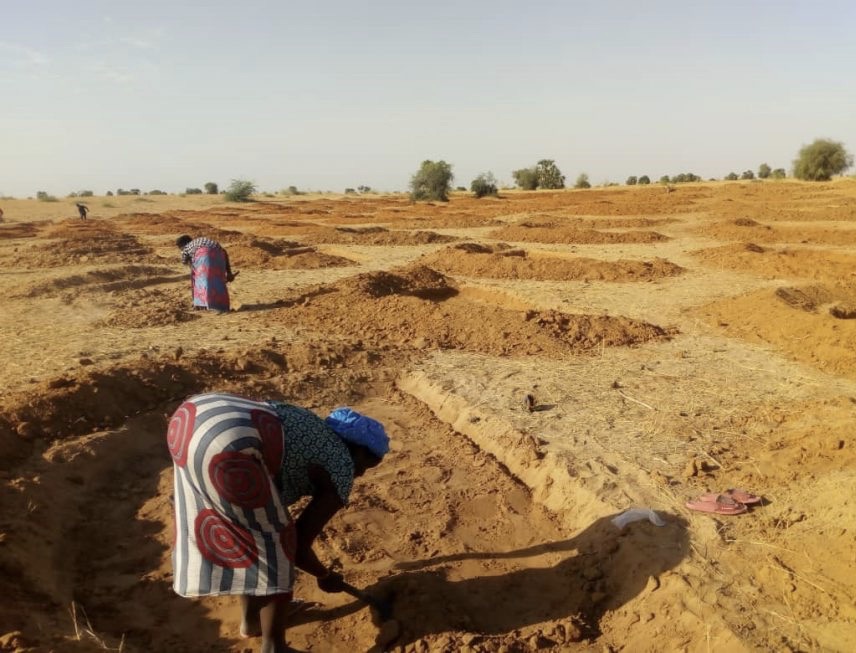Scaling Up the Impact of Rainwater Harvesting Techniques on Small-Scale Farming in Niger

Photo Credit: Acted | Flickr
Researchers partner with Niger’s Ministry of the Environment to Scale Information Delivery of Rainwater Harvesting Techniques
A key policy question in sub-Saharan Africa is how to reach yield potential for important crops without introducing further environmental degradation. In the Sahel, a semi-arid region in which nearly 80% of farmland is degraded, practices that improve water and nutrient availability in the soil may increase yields and farmer incomes, among other benefits.
Researchers Jenny Aker and Kelsey Jack, supported by CEGA and the Abdul Latif Jameel Poverty Action Lab’s (J-PAL) Agricultural Technology Adoption Initiative, partnered with Niger’s Ministry of the Environment and the Sahel Consulting Group to test barriers to the adoption of demi-lunes, a rainwater harvesting technique that can capture rainwater for a short period of time (2-3 days), stymy soil runoff, and increase soil nutrient content.
Despite potential high returns to the adoption of demi-lunes, most small-scale farmers in the Zinder region of Niger do not engage in the practice. This may be due to two reasons: the high upfront cost of demi-lunes (agronomic research suggests that one hectare of demi-lune construction costs around $80USD) or the lack of technical information about demi-lunes.
The research team conducted a randomized evaluation to test the effects of a training and cash transfers on farmers’ adoption of demi-lunes, agricultural production, land use, and household labor allocation. The half-day, in-person training, taught both the theory and practice of how to construct demi-lunes. Researchers found that providing farmers with training alone increased the adoption of demi-lunes by 90 percentage points relative to villages that did not receive training. Yet conditional or unconditional cash transfers had no additional effect in the medium- or long-term.

The promising results of farmer training on demi-lune adoption helped researchers to attract funds from J-PAL’s King Climate Action Initiative and USAID-DIV to scale up the findings to test adjustments to the training content and format, as well as monitoring methods, for a larger group of agricultural households in the Maradi and Zinder regions of eastern Niger.
Researchers continue to collaborate with the Ministry of the Environment to understand the costs and benefits of several potential program adjustments, including:
- Training on zai, another rainwater harvesting technique (in addition to demi-lunes).
- Inviting all farmers within the village to training, as compared with the original smaller size.
- Utilizing remote sensing to monitor adoption, as compared with in-person monitoring.
With 400 villages participating in the scale-up study, over 6,000 households will directly benefit from the training. Meanwhile, further scale-up is promising, highlighting the importance of deliberate training on rainwater harvesting techniques to contribute to improved water security, soil health, and subsequently small-scale farmer welfare in the Sahel.

